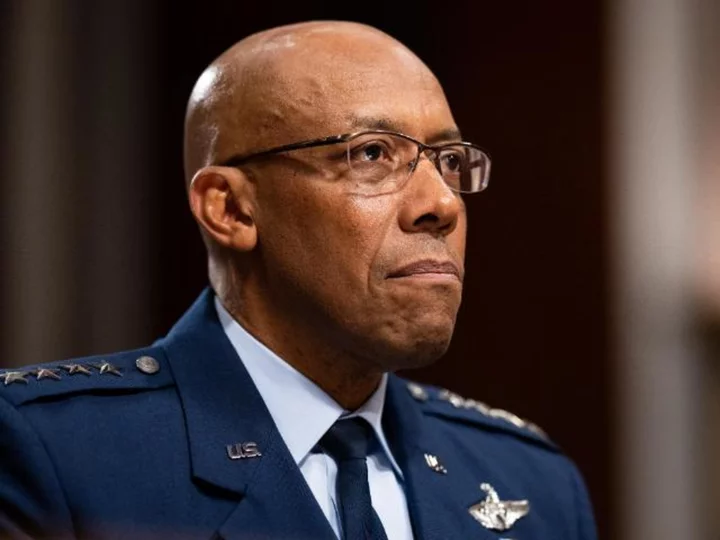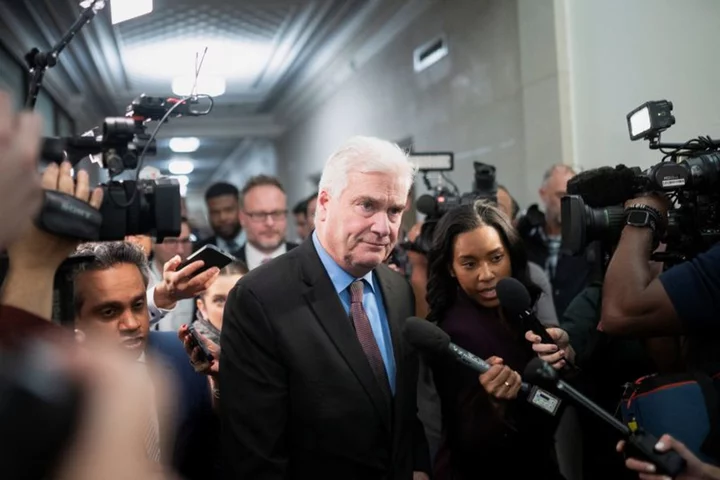Charles Q. Brown builds on an already historic career in becoming the the country's next most senior ranking military officer.
Before being confirmed Wednesday as the next chairman of the Joint Chiefs of Staff, Brown, who goes by C.Q., was the first Black service chief in US military history when he was confirmed as chief of the Air Force in 2020.
Brown is only the second Black man to serve as chairman -- following Gen. Colin Powell -- where he will act as the principal military adviser to President Joe Biden, Secretary of Defense Lloyd Austin and the National Security Council.
Brown's confirmation also marks the first time that both of the Defense Department's top leaders -- the secretary of defense and the chairman of the Joint Chiefs -- are African American.
President Joe Biden nominated Brown in May and described the general as "a warrior" and a "fearless leader and unyielding patriot." But his nomination became ensnared in a monthslong blockage on Pentagon nominations by Alabama Republican Sen. Tommy Tuberville in the Senate.
The Senate ultimately voted 83-11 to confirm his nomination Wednesday.
Commissioned in 1984 from the ROTC Program at Texas Tech University in Lubbock, Texas, Brown has commanded a fighter squadron, two fighter wings, US Air Forces Central Command and the US Air Force Weapons School, according to his official biography.
Prior to becoming the Air Force chief of staff, Brown served as the commander of Pacific Air Forces -- the air component of US Indo-Pacific Command.
While serving as the commander of the Pacific Air Forces, the typically reserved Brown made headlines by releasing a deeply personal video in the wake of the 2020 police killing of George Floyd. In the video, he said he was "full with emotion" for "the many African Americans that have suffered the same fate as George Floyd" and recalled being one of the few Black people at his school, his platoon and in leadership.
"I'm thinking about the pressure I felt to perform error-free, especially for supervisors I perceived had expected less of me as an African American. I'm thinking about having to represent by working twice as hard to prove their expectations and perceptions of African Americans were invalid," he said.
He added: "I'm thinking about how I can make improvements personally, professionally and institutionally, so that all Airmen, both today and tomorrow, appreciate the value of diversity and can serve in an environment where they can reach their full potential."
Brown's confirmation was held up after Tuberville said he would object to confirming military nominees as a group by unanimous consent in protest of the Pentagon's policy providing a travel allowance for troops and their families who must travel to receive an abortion because of the state laws where they are stationed. He instead suggested that Brown and other military nominees be brought to the Senate floor one-by-one -- a process that could take hundreds of hours.
Senate Majority Leader Chuck Shumer ultimately caved to Tuberville's demand and agreed to bring a handful of votes on military promotions to the floor.
The Senate is expected to vote to confirm Gen. Eric Smith as commandant of the Marine Corps and Gen. Randy George as Army chief of staff later this week.









